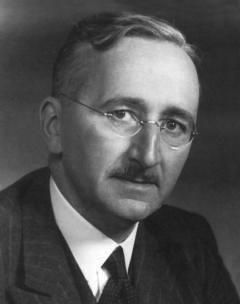Derecho, legislación y libertad
Frases célebres de Friedrich August von Hayek
Camino de servidumbre. Madrid: Alianza, 2003, p. 169.
Camino de servidumbre. Madrid: Alianza, 2003, p. 203.
Camino de servidumbre. Madrid: Alianza, 2003
Frases de fe de Friedrich August von Hayek
Camino de servidumbre. Madrid: Alianza, 2003, p. 189.
Camino de servidumbre. Madrid: Alianza, 2003, p. 190.
Camino de servidumbre. Madrid: Alianza, 2003, pp. 201-202.
Derecho, legislación y libertad
Derecho, legislación y libertad
Frases de vejez de Friedrich August von Hayek
Friedrich August von Hayek Frases y Citas
Camino de servidumbre. Madrid: Alianza, 2003, p. 186.
siendo otros ejemplos destacados el derecho, el lenguaje y la moral
Camino de servidumbre
La Fatal Arrogancia: Los Errores del Socialismo (1988), p. 76
Friedrich August von Hayek: Frases en inglés
Fuente: 1980s and later, The Fatal Conceit: The Errors of Socialism (1988), p.102
1980s and later, Knowledge, Evolution and Society (1983), "Coping with Ignorance", "The Reactionary Nature of the Socialist Conception"
Fuente: 1960s–1970s, The Constitution of Liberty (1960), p. 99.
"Trade Unions — The Biggest Obstacle", Economic Affairs (October 1980)
1980s and later
1980s and later, Knowledge, Evolution and Society (1983), "Coping with Ignorance", "Our Moral Heritage"
Conversation https://www.youtube.com/watch?v=qNwceWargfs&feature=youtu.be&t=2m10s with Alchian (1978); About Vera Lutz, published in Nobel Prize-Winning Economist: Friedrich A. von Hayek https://archive.org/details/nobelprizewinnin00haye (1983), p. 363
1960s–1970s
" Planning, Science and Freedom http://www.nature.com/nature/journal/v148/n3759/abs/148580a0.html", Nature 148 (15 November 1941), also available as " Planning, Science, and Freedom https://mises.org/library/planning-science-and-freedom," Mises Daily (Auburn, AL: The Ludwig von Mises Institute, 27 September 2010)
1940s–1950s
1980s and later, Knowledge, Evolution and Society (1983), "Coping with Ignorance"
Fuente: http://imprimis.hillsdale.edu/coping-with-ignorance/
1960s–1970s, A Conversation with Professor Friedrich A. Hayek (1979)
In a 1985 interview with Gary North and Mark Skousen, in Hayek on Hayek (1994)
1980s and later
" The Moral Imperative of the Market https://mises.org/library/moral-imperative-market", in The Unfinished Agenda: Essays on the Political Economy of Government Policy in Honour of Arthur Seldon (1986)
1980s and later
1960s–1970s, A Conversation with Professor Friedrich A. Hayek (1979)
1980s and later, Knowledge, Evolution and Society (1983), "Coping with Ignorance", "Science and Socialism"
Fuente: http://www.aei.org/publication/a-conversation-with-friedrich-a-von-hayek/
Lecture I. Freedom and the Rule of Law: A Historical Survey - 1. Principles and Drift in Democratic Process
1940s–1950s, The Political Ideal of the Rule of Law (1955)
1980s and later, Interview in Silver & Gold Report (1980)
On the Iran hostage crisis; letter to The Times (12 January 1980), p. 13
1980s and later
Law, Legislation and Liberty, volume 3, chapter 3, p. 55 https://books.google.pt/books?id=nclLLOfnGqAC&pg=PA55 (1979)
1960s–1970s, Law, Legislation and Liberty (1973, 1976, 1979)
Protesting against the Allies' decision to hand South Tyrol back to Italy; letter to The Times (22 December 1945), p. 5
1940s–1950s
Exclusive Interview with F.A. Hayek by James U. Blanchard III, in Cato Policy Report (May/June 1984)
1980s and later
